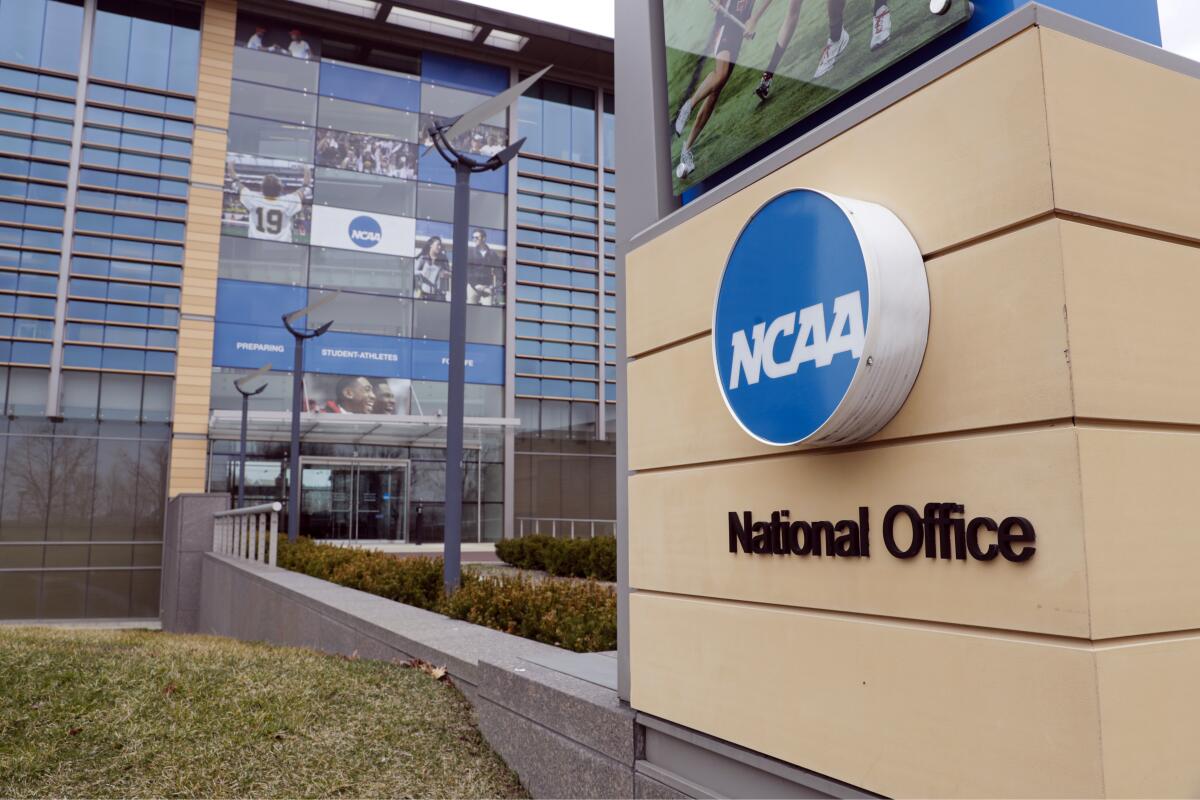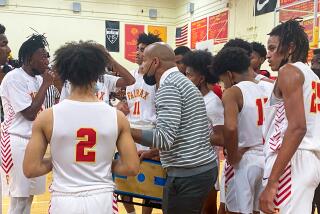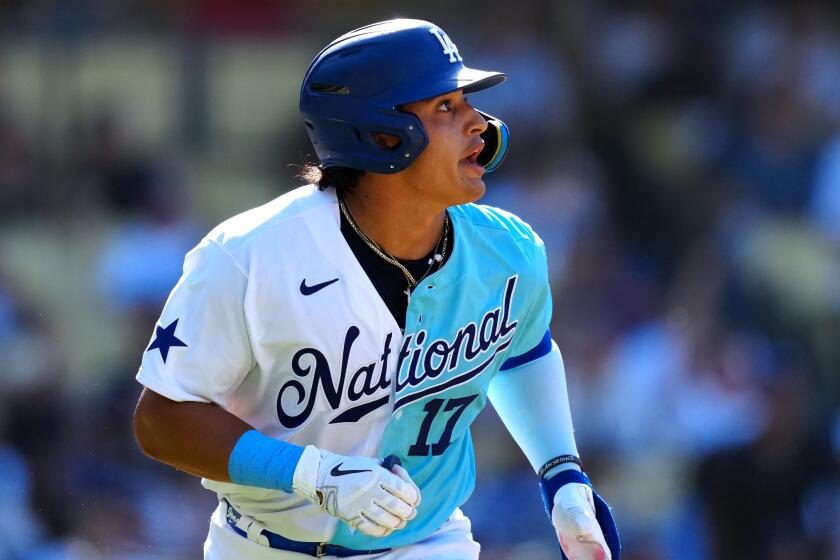NCAA postpones all non-football fall sports championships because of COVID-19

With more than 50% of eligible Division I schools already postponing their fall sports seasons amid the COVID-19 pandemic, the NCAA Division I Board of Directors felt they had no choice but to postpone all fall championships, as NCAA President Mark Emmert said would be the case earlier this month. The board made it official Friday when it announced in a statement that it will “work toward hosting scaled back fall championships in the spring.”
The ruling affects all fall sports except football. The format for the championships, including bracket size and composition, still need to be approved by the board. The group also cautioned that the tournaments can only be played in the spring if they can be conducted according to federal, state and local health and safety guidelines.
As conferences and schools operate mostly independently in an attempt to corral the coronavirus outbreak while trying to return to school and athletics, the board also adopted several protections recommended for athletes by the Division I Council.
The board, composed mostly of presidents and chancellors from various schools, approved a waiver that allows fall sport athletes to compete in any number of competitions this year, whether during normally planned fall seasons or postponed spring campaigns, and not have their eligibility be affected.
UCLA athletes talk about the mental strain of being in limbo over delayed and canceled seasons.
The board also allowed any senior who decides to come back for the 2021-22 season to not count toward the scholarship limit. For football, where the Division I scholarship limit is 85, the number of scholarship players on a roster could easily balloon to more than 100 with returning seniors combining with incoming freshmen.
The Division I Council, which consists mostly of athletic directors and reports to the board, recommended the additional protections, which were approved by the board Friday:
- Schools can’t require athletes to waive legal rights regarding COVID-19 as a condition of athletic participation
- Scholarships can’t be affected if an athlete were to opt out of the season due to COVID-19
- Flexibility for athletes who aren’t enrolled as full-time students during the 2020 fall term concerning progress-toward-degree requirements
- Schools also must review their insurance coverage for athletes competing in the fall, inform players about COVID-19 risk in their sport and tell them how their campus is adhering to the NCAA’s standards for restarting sports.
Conference USA follows suit
Soon after the NCAA’s decision to move fall championships to spring, Conference USA delayed its fall team sports seasons, with the exception of football, to stay in line with the NCAA’s calendar. C-USA will move its men’s and women’s soccer and women’s volleyball seasons and conference tournaments to the spring of 2021.
“We value the opportunity for our schools to compete at the highest level and play for championships,” C-USA Commissioner Judy MacLeod said in a statement. “Moving these sports to the spring maintains those opportunities for our student-athletes, coaches and fans.”
Meanwhile, its football teams are scheduled to begin conference play Sept. 12. The football teams plan to play eight conference games and are allowed up to four non-league games.Iowa cuts four sports
Feeling the pandemic financial pinch, Iowa cut four sports Friday. The school will discontinue its men’s gymnastics, men’s and women’s swimming and diving and men’s tennis teams after the 2020-21 academic year. Whether the athletes get to compete during their final opportunity coming this year remains in question.
Olympic sports athletes and coaches, like those at USC and UCLA, are dealing with more disappointment as their fall seasons are being canceled.
Iowa is the first school in the Big Ten to cut sports amid the pandemic. The Big Ten postponed fall sports competition due to concerns regarding the coronavirus. Iowa projects approximately $100 million in lost revenue with an overall deficit between $60 million and $75 million this fiscal year, the school said in a statement announcing the cuts.
“With the recent postponement of fall sports and immediate financial impact due to this decision, we believe this path is necessary to strengthen athletics and position our programs for future success with the resources we have,” Iowa President Bruce Harreld and athletic director Gary Barta wrote in an open letter.
The school will honor existing scholarships through graduation for the athletes who choose to stay at Iowa, and the school said it will assist those who decide to transfer. The contracts of the coaches will also be honored, the letter said.
Of the four affected sports, only men’s tennis was scheduled to compete in the fall as athletes can play individual tournaments before the team’s official spring season.
More to Read
Go beyond the scoreboard
Get the latest on L.A.'s teams in the daily Sports Report newsletter.
You may occasionally receive promotional content from the Los Angeles Times.










